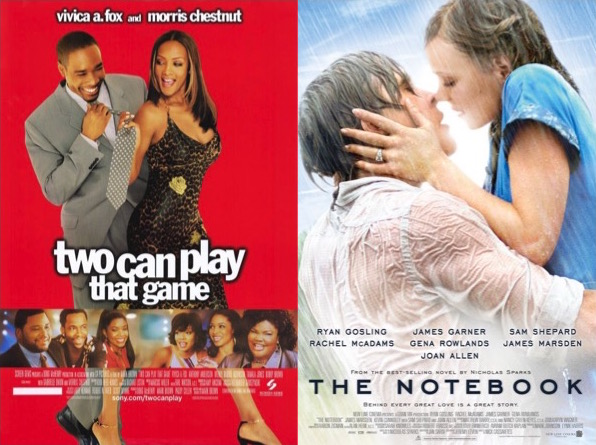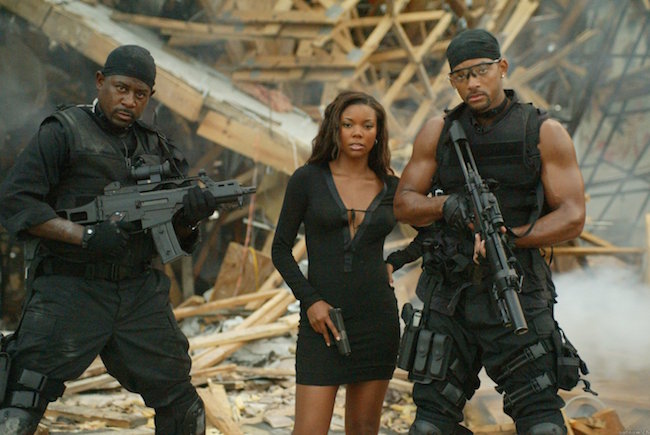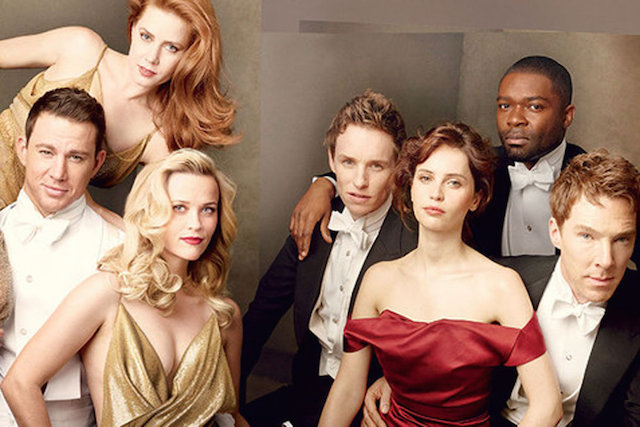Diversity In Hollywood: It’s More Than Just Casting

Egyptians according to Hollywood.
This awards season brought attention once again to the need for Hollywood to be more representative of the population with its casting. The world, our country, and Los Angeles especially, are diverse in their populations and our films should reflect that. It’s not just black actors and actresses who aren’t being given the opportunities they deserve. Asians, Latinos, and women are also underrepresented. The call for diversity from the black community this year can be applied to all minorities in entertainment; they all deserve an equal chance at success.
Now when it comes to the issues of race and diversity, as a white male, I recognize that I’m a member of the majority and thus subject to a different experience, whether I acknowledge it or not. Often times, in the open discussion about these issues, the best thing a member of the majority can do is shut up and listen. We need to understand more than how others feel about the current state of the depiction of minorities in entertainment, we need to be a part of the solution. While increasing the casting opportunities is a great place to start (we need more Asian and Latino leading men and women, we need more dark skinned black actresses in leading roles, we need more than what we’ve had for almost 100 years—white leads in almost everything), Hollywood also needs to address how movies with minorities are marketed to the public.

The reason Downy Jr.’s character in Tropic Thunder is so funny is because of how much it’s a send up of how Hollywood approaches and views diversity. It’s the perfect satire.
Marketing is a critical aspect to a movie’s success. Think about it. You’re driving down Sunset one week and you see a billboard for a movie, then three weeks later, you see the same billboard advertising a different film. You don’t give it any further thought, unaware of the countless hours spent on comps, revisions, often times useless studio executive notes, and arguments over minutiae. Entertainment marketing takes a movie (many of them with budgets upwards of 150 million dollars) and condenses it into a single image for a one sheet or a two-minute trailer to sell to an audience over one weekend. A movie is considered a success or failure based on its opening weekend. Look at Interstellar, a critically praised, profitable, high concept, original film, that opened #2 to Big Hero Six and you had articles the following Monday saying that it was Christopher Nolan’s first misfire. Movies are fueled by their opening weekend and marketing is what gets people in those seats.
Films with black actors and actresses, or any primarily minority casts, are marketed very differently than movies with white actors. These minority driven vehicles are targeted toward their respective minority groups specifically, as if there’s no market appeal beyond a race’s own demographic. This is a serious problem, as it prevents these movies from having the opportunity to reach the widest audience possible. It’s exclusionary in its practice and there’s no real reason for it. And while it’s true that many of Tyler Perry’s movies may just appeal to a specific audience due to the nature of their content, the same could be said for Ben Stiller movies or Sasha Baron Cohen. The difference is, Tyler Perry’s movies are targeted to just black audiences. There isn’t as big a budget allocated to marketing for his movies, there isn’t the kind of saturation you see with Ben Stiller or Sasha Baron Cohen movies, and this has an effect on how the movie performs. If people are being told through the promotional material that a movie isn’t for them, or worse, they’re unaware of the movie altogether, how can the movie hope to find the same amount of success as what is considered mainstream? Now despite this, Perry’s movies are financially successful, but I image they would be even more so with better marketing.

Look at the difference. Same genre (love story), but Two Can Play That Game’s poster is boring and basic while The Notebook has a dynamic, cinematic image. This happens a lot with films with largely minority casts.
One of the most recent examples I can think of is a movie called No Good Deed starring Idris Elba. This movie was not marketed very wide and still enjoyed a #1 debut for its opening weekend and went on to make four times it’s production budget. So what’s the issue? Well it only made 1.7 million in foreign gross compared to 52 million domestically. Why? It wasn’t marketed internationally. How come? Well there’s this silly assumption that a movie with black actors doesn’t have as much worldwide appeal as other movies; which makes no sense. Never mind that Idris Elba is a genuine movie star, handsome and talented, and that the movie was a hit in the US. The studio hardly promoted the movie internationally. Compare No Good Deed to The Gift, starring Jason Bateman, both thrillers, but The Gift pulled in 15 million internationally because it received a big marketing push overseas.
If we want to truly break down the barriers and unnecessary mores of the way Hollywood is currently run, we need to focus on casting and what’s going on behind the scenes. It’s not just marketing. There’s a severe lack of minorities working in below the line and studio executive positions. Marketing is especially important, however, because it’s how a studio brings its product to the public and we need to move beyond the incorrect and dated notion that movies with minority actors only appeal to minority audiences. When this concept is ignored, you get massive hits like Bad Boys or Ride Along or Fast and Furious. This has nothing to do with the quality of the movie itself—a bad movie is a bad movie, but when Hollywood finally begins to be inclusive with its marketing as well as its casting, we will have an industry that reflects the true makeup of the population and that’s a benefit to everyone.

The racial make-up of the cast is not important to a movie’s success. What matters are entertaining performances and stories. This should be the norm, not the exception.
